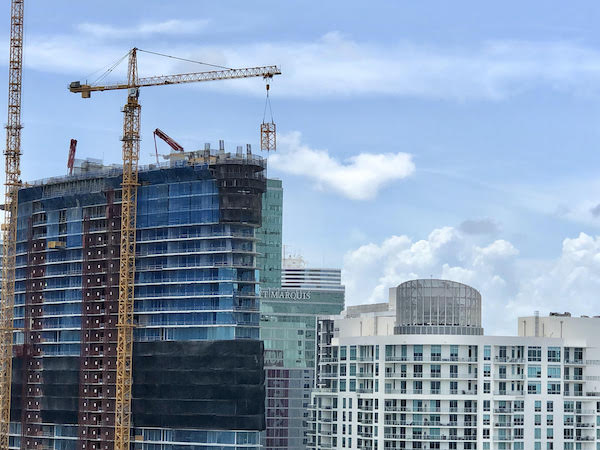- June 1, 2021
- Posted by: admin
- Category: Contractor Legal Information, Florida Contractor License

The following article was written by Miami Construction Lawyer Alex Barthet and appeared first on TheLienZone. It was re-posted with permission. For more information about Alex and his firm, please visit www.TheLienZone.com and www.Barthet.com.
See below for some great information on increasing costs and material shortages in construction. Have you been noticing it’s harder and harder to find the materials you need, and when you do, the prices have skyrocketed?
Do not hesitate to call us here at Licenses, Etc.! If we don’t have the information, we can find it for you!
We’ve all noticed that the price of just about everything has gone up in the last year. And if that isn’t bad enough, obtaining many of the materials needed in construction has gotten very difficult. This combination of price escalation and material shortages is significantly disrupting a contractor’s ability to properly price and timely build any project.
But contractors are not without some remedy. They can attempt to address these issues either during the negotiation and bid process or once construction has commenced.
It is obviously easier to attend to such matters before a contract is actually signed. Look to strike any proposed language which has you absorbing the risk and exposure of a price escalation. Rather seek to incorporate the right to adjust the pricing on the job, passing on any unexpected increases, maybe through a change order. Alert your suppliers, advising them you need guaranteed pricing for some extended period and you need written notice significantly in advance of any anticipated increase in pricing or any delay in delivery. You might want to add a provision similar to the following:
Where the delivery of materials is delayed or quantities are limited as a result of shortages, rationing or unavailability, subcontractor shall not be liable or responsible for any delays or damages caused thereby. When this occurs, subcontractor shall propose substitute or alternate means of acquiring said materials and contractor and subcontractor shall negotiate an equitable price adjustment to their contract. When the costs of any material exceed 25% more than the documentable price originally quoted by subcontractor, then subcontractor shall notice contractor in writing of such change and the parties shall come to a mutual agreement on a new price. This provision shall control over all other terms and conditions in this agreement and contract documents.
If you’ve already entered into a contract, it will surely be more difficult to address these issues. But depending on how the contract is written, an equitable adjustment in both time and price may still be achieved through the exercise of certain existing contract provisions, such as a Force Majeure clause, noting circumstances beyond your control entitle you to some modicum of relief. Pushed to honor your original pricing, you likely will be unable to complete the work – something neither the contractor nor the owner would want to see happen as this will undoubtedly delay the progress of the project and cost them both more than the reasonable price increase you would be quoting. A good faith renegotiation should be attempted.
Be proactive – approach each ongoing and new job with these points in mind.
At Licenses, Etc., we offer a fast and easy contractor license application process for our contractor clients in Florida and other states. We are a Florida contractor licensing company. Contact us at Licenses, Etc., to get your Florida contractor’s license today by clicking Florida contractor’s license page or calling 239-777-1028.
Leave a Reply
You must be logged in to post a comment.
